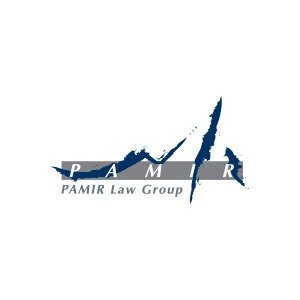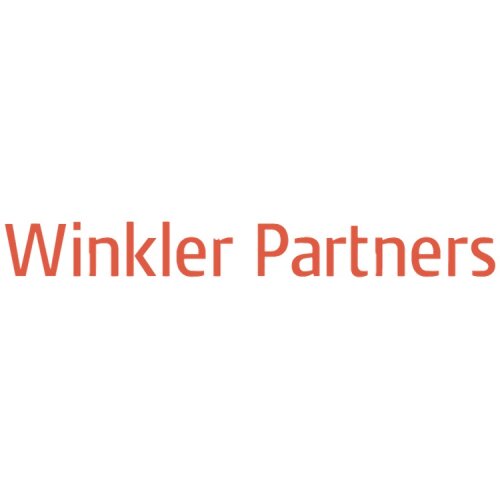Best Sanctions & Export Controls Lawyers in Taiwan
Share your needs with us, get contacted by law firms.
Free. Takes 2 min.
Or refine your search by selecting a city:
List of the best lawyers in Taiwan
About Sanctions & Export Controls Law in Taiwan
Sanctions and export controls in Taiwan form a vital part of its trade regulation and national security policies. The framework seeks to prevent the movement of sensitive goods, technologies, and services to certain countries, entities, or individuals, especially where such transfers may threaten international peace, security, or violate international agreements. Taiwan implements these controls in alignment with key global standards, even though it is not a member of the United Nations. The focus includes dual-use goods, military equipment, and items subject to international non-proliferation regimes. Businesses and individuals involved in cross-border transactions must comply with these laws to avoid severe penalties.
Why You May Need a Lawyer
Engaging a lawyer with experience in sanctions and export controls can be indispensable in several situations. These include:
- If your business exports or re-exports goods, software, or technology from Taiwan to countries with existing sanctions or high-risk profiles.
- If you are unsure whether your products are classified as dual-use or controlled under Taiwanese law.
- When you receive government inquiries, audits, or enforcement notices related to trade activities.
- If you need to navigate licensing requirements for certain exports or require help interpreting end-user or end-use restrictions.
- Upon discovering or suspecting a breach of sanctions or export controls involving your business or associates.
- For handling voluntary disclosures of compliance incidents to authorities, minimizing potential penalties.
- When planning international transactions or expansions that could trigger export control considerations.
- If your goods or assets are detained due to suspected sanctions violations.
Local Laws Overview
In Taiwan, sanctions and export controls are primarily governed by several key laws and regulations:
- Trade Law: Overseen by the Ministry of Economic Affairs (MOEA), this law authorizes the government to restrict or ban exports and imports for reasons of national security, international obligations, or other public interests.
- Foreign Trade Act: Empowers authorities to establish Lists of Strategic High-Tech Commodities and control exports accordingly. Exporters must seek permits for certain commodities, especially those with potential military or dual-use applications.
- Regulations Governing Trade Between the Taiwan Area and the Mainland Area: Specifies special controls on the import, export, and movement of goods, technology, and services between Taiwan and mainland China.
- Export Control List and Strategic High-Tech Commodities List: These official lists specify items subject to heightened scrutiny due to their potential use in weapons, nuclear, or military applications.
- International Sanctions Implementation: Taiwan implements UN-like sanctions through executive orders and administrative orders, often aligned with the international community’s practices, targeting specific countries, organizations, or individuals
- Penalties: Violations can result in severe civil and criminal penalties, including hefty fines, loss of business licenses, asset freezes, or imprisonment.
Regular updates to laws and lists require continuous monitoring to ensure ongoing compliance.
Frequently Asked Questions
What are export controls in Taiwan?
Export controls in Taiwan are legal restrictions on the export, re-export, or transfer of certain sensitive goods, technologies, or services from Taiwan to other countries or entities. The goal is to protect national security and uphold international obligations.
What types of items are subject to export controls?
Items on the Strategic High-Tech Commodities List, which include dual-use items, military goods, certain chemicals, electronics, and technologies that could be used in weapons proliferation, are subject to controls.
Do sanctions in Taiwan only apply to specific countries?
While many sanctions focus on particular regions or countries, especially those under international scrutiny, Taiwan’s government can designate any country, group, or individual as a sanctioned party if deemed necessary for national interests.
How can I check if my product is controlled or requires an export license?
You should consult the official export control and strategic commodity lists, or seek legal counsel. The Ministry of Economic Affairs regularly updates these lists, and classification can be complex.
What are the penalties for violating sanctions or export controls in Taiwan?
Sanctions or export control violations can result in substantial fines, criminal prosecution, imprisonment, and the loss of business licenses or export privileges.
Can I send software or technical data abroad without restrictions?
No, the transfer of software or technical data may be restricted, especially if it falls under dual-use or controlled categories. Always check applicable regulations before transferring any controlled technology.
Are there extra controls for trade with mainland China?
Yes, special regulations apply to cross-strait trade. Certain high-tech goods, information, and technology require permits before export to mainland China.
Are there any exceptions or general licenses?
Some low-value or mass-market exports may benefit from simplified procedures or general licenses, but this is determined by the trade authorities or listed in the relevant regulations. Legal advice is recommended to clarify eligibility.
Do I need to screen my customers and suppliers for sanctions compliance?
Yes, companies should screen all parties in international transactions to ensure none appear on banned or restricted lists. Failure to do so can result in liability for facilitating a prohibited transaction.
What should I do if I discover a potential violation?
Immediately consult a legal professional experienced in sanctions and export controls to assess the situation, prepare voluntary disclosures if needed, and develop a response strategy to minimize penalties and reputational risks.
Additional Resources
The following governmental bodies and organizations offer resources, guidance, and support related to sanctions and export controls in Taiwan:
- Ministry of Economic Affairs (MOEA) - Bureau of Foreign Trade (BOFT): They issue and administer export licenses, publish control and sanctions lists, and provide guidance to exporters.
- Export/Import Administration: Responsible for implementing export controls, especially for strategic high-tech commodities.
- Customs Administration (Ministry of Finance): Provides customs guidance and supports compliance checks at ports of exit and entry.
- Taiwan Institute of Economic Research (TIER): Offers research, seminars, and updates on trade policies.
- Professional Legal Associations: Local bar associations or chambers of commerce may provide referrals to qualified export control attorneys.
Next Steps
If you are involved in cross-border trade or suspect your activities may be subject to sanctions and export controls in Taiwan, here is how you can proceed:
- Assess your exports, technology transfers, and customer profiles to identify areas of compliance risk.
- Review the relevant laws, control lists, and government guidance published by MOEA and the Bureau of Foreign Trade.
- Document your internal compliance practices and coordinate with your logistics, legal, and compliance teams.
- If you experience a compliance issue or have questions about regulations, consult a qualified lawyer specializing in sanctions and export controls in Taiwan.
- Develop periodic staff training, internal audits, and update compliance programs as laws and regulations change.
- Maintain communication with authorities and industry groups for information on regulatory updates and best practices.
Timely access to legal advice, combined with robust compliance policies, can protect your interests and keep your business operations secure and legally compliant in Taiwan’s fast-evolving export environment.
Lawzana helps you find the best lawyers and law firms in Taiwan through a curated and pre-screened list of qualified legal professionals. Our platform offers rankings and detailed profiles of attorneys and law firms, allowing you to compare based on practice areas, including Sanctions & Export Controls, experience, and client feedback.
Each profile includes a description of the firm's areas of practice, client reviews, team members and partners, year of establishment, spoken languages, office locations, contact information, social media presence, and any published articles or resources. Most firms on our platform speak English and are experienced in both local and international legal matters.
Get a quote from top-rated law firms in Taiwan — quickly, securely, and without unnecessary hassle.
Disclaimer:
The information provided on this page is for general informational purposes only and does not constitute legal advice. While we strive to ensure the accuracy and relevance of the content, legal information may change over time, and interpretations of the law can vary. You should always consult with a qualified legal professional for advice specific to your situation.
We disclaim all liability for actions taken or not taken based on the content of this page. If you believe any information is incorrect or outdated, please contact us, and we will review and update it where appropriate.
Browse sanctions & export controls law firms by city in Taiwan
Refine your search by selecting a city.
















